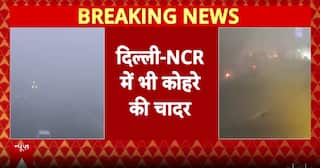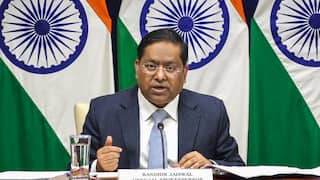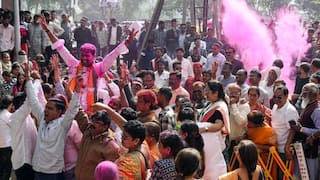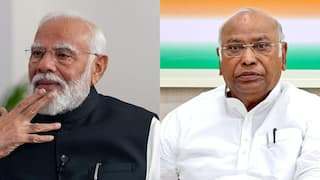Pak can't be blamed for Hafiz Saeed's release: Abdul Basit

New Delhi [India], Nov 24 (ANI): Former High Commissioner of Pakistan to India Abdul Basit on Friday said Islamabad could not be blamed for the release of Hafiz Saeed from house arrest, and that New Delhi failed to share hard evidence against him.
Basit's statement has come in the wake of the United States calling on Pakistan to ensure the Jamaat-ud-Dawah (JuD) chief was arrested and charged for his crimes.
Saeed, accused of masterminding the 2008 attacks in Mumbai that killed 166 people, was released today after a Pakistan judicial body on Wednesday ordered his release from house arrest, rejecting a request from the government of Punjab to extend his detention by three months.
"Pakistan cannot be blamed for this. It is India that has failed to share hard evidence. People cannot be tried and sentenced on the basis of literature and self-serving accusations," Basit told ANI.
"The US is deeply concerned that Lashkar-e-Toiba (LeT) leader Hafiz Saeed has been released from house arrest in Pakistan. The LeT is a designated Foreign Terrorist Organisation responsible for the death of hundreds of innocent civilians in terrorist attacks, including a number of American citizens. The Pakistani Government should make sure he is arrested and charged for his crimes," US State Department spokesperson Heather Nauert had said, in a press statement.
The US State Department spokesperson added Saeed was a United Nations designated terrorist and had a USD 10 million bounty on his head.
"Saeed was also individually designated by the United Nations under UNSCR 1267 in December 2008 following the November 2008 Mumbai attack in which six American citizens were killed. In May 2008, the United States Department of the Treasury designated Saeed as a Specially-Designated Global Terrorist under Executive Order 13224," the statement added.
In his first address after being released, Saeed had blamed India and the US for detention and raked up the Kashmir issue.
The decision to put Saeed under house arrest in January was seen as a response to actions by US President Donald Trump's White House against nations deemed linked to terrorism. (ANI)
This story has not been edited. It has been published as provided by ANI





























